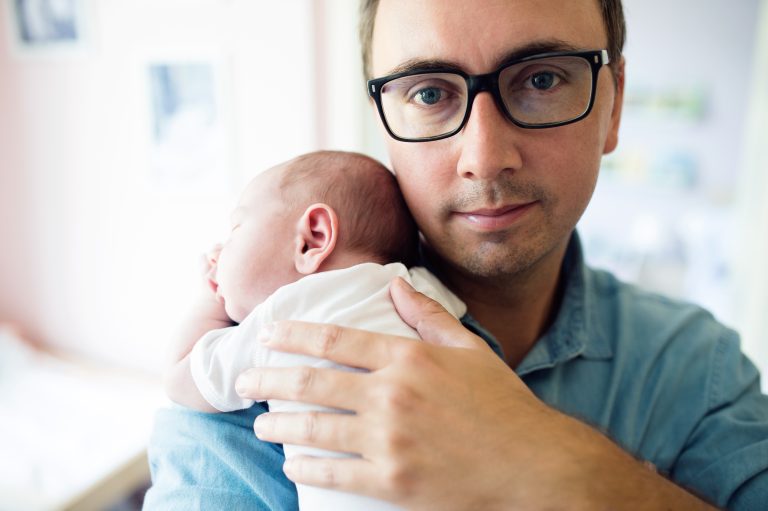Postpartum depression is depression that occurs after having a child. It is a complex form of depression, caused not only by hormonal changes, but also missing sleep, life transition issues, worries, limited self-care, and so much more.
Postpartum depression, or PPD, is traditionally associated with new mothers, as statistically as many as 20% or more new mothers may experience postpartum depression and are more likely to experience the rapid hormonal shifts that occur during and after childbirth.
But PPD is not limited to women. In fact, men experience PPD in some form at a fairly high rate.
What is Male Postpartum Depression?
Childbirth is an immensely physical event. Not only does childbirth itself involve rapidly changing hormones and neurochemicals, but after childbirth, the body has to start adjusting to no longer being pregnant. Hormones are not the only cause of PPD in new mothers, but they are a contributing factor.
That is one of the reasons that male postpartum depression, and postpartum depression in other non-birthing partners, is often not recognized or understood. But estimates put the number of men that experience some form of PPD at as much as 10% or more – not quite as high as the 20% of women, but still far higher than most expect.
Termed “paternal postnatal depression” (or “maternal postpartum depression in non-birth mothers), the condition is also not entirely understood. Men do experience hormonal changes after childbirth, but the depression itself is likely linked to other factors that include, but are not limited to:
- Disrupted Sleep – Introducing a new baby does involve a lot of sleepless nights, which can make it harder to process stress and emotions.
- Relationship Stress – New babies can put a strain on the relationship, and the contentment and happiness of many men is tied to their connection to their partner.
- Different Bonding Experience – Fathers often feel they are not able to bond with the baby in the same way the mother is, and so a new baby can feel foreign and different.
- Lack of Social Support – Many men feel very alone when a new baby comes into the world, and may not know what their role is or how to find support.
- Past Trauma – Men that have had difficulties with their own parents may also have traumas that are trigged by bringing in a new child.
- Uncertainty – Men may not understand their place in the family now that the baby is there, or feel overwhelmed by the demands of parenthood.
- Limited Positive Feedback – Many new parents expect an instant, mutual bond with their baby, but the first few months are mostly labor. Babies do not often interact until later.
- Transition – Change can be difficult. Bringing a new baby is a massive transition that can cause stress, anxiety, and trouble coping.
These are only a few of the many different issues that can lead to the development of paternal postnatal depression.
Raising a Child is Hard
Many parents freely and openly talk about how raising a child is hard. But it is often very difficult for expecting parents to fully appreciate what the difficulty will be, especially in those first few months. Infants are born with a near never-ending supply of needs, and are not yet at an age where they can “make up for it” by laughing and smiling with their parents in ways that help enhance the bond.
Raising a child is difficult for both parents, and while postpartum depression in men may not be viewed as “as common,” it is still an issue that affects a large percentage of men. It is important to encourage more men to talk about these feelings, and destigmatize seeking out a therapist, as PPD responds well to treatment in both women and men.

